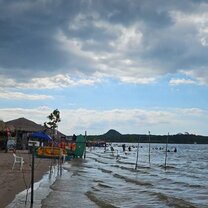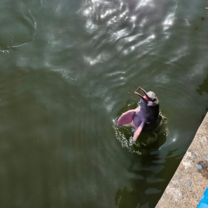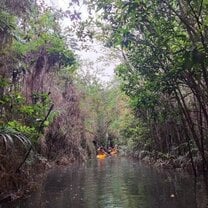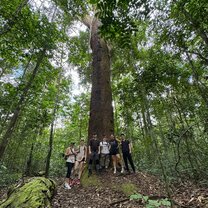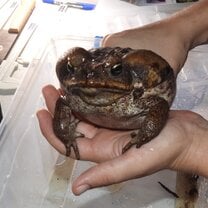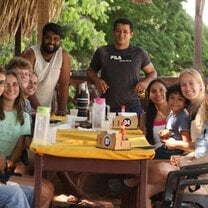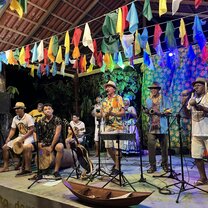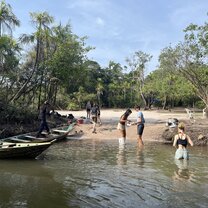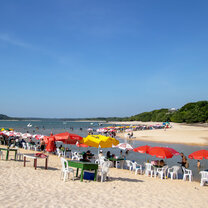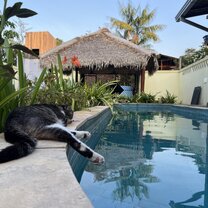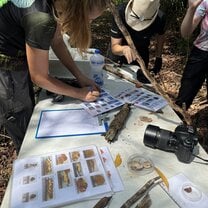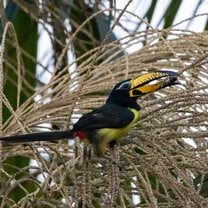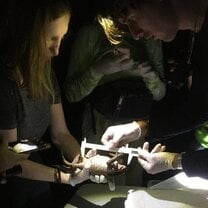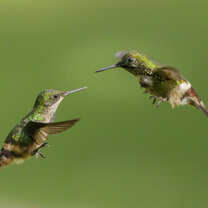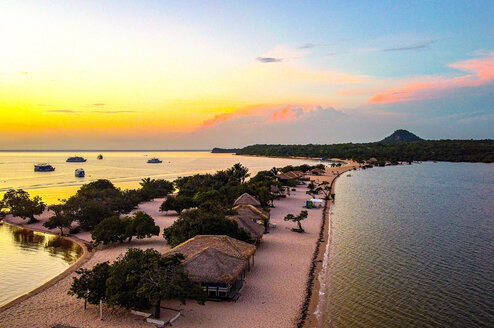Why did you choose this program?
I chose IPBio Reserva Betary because I was fancy seeing glowing (bioluminescent) mushrooms. One of the projects at the research station is a mushroom project on which some scientist discovered loads of mushrooms during the last years, so I found this quite exiting.
Not having any mushroom based research background I was happy enough to be the photographer and videographer on site for 3 months, so I created 12 video trailers from the 4 main projects, the facilities and short wildlife highlights. Besides that I share more than 500 of stunning images with IPBio which will be used in magazines and on social media.
What did your program provider (or university) assist you with, and what did you have to organize on your own?
IPBio assisted with the whole package. Transport from the airport to the reserve is not part of the program, but you get some recommendation for hostels and the right bus connection to choose and therefore getting there is pretty easy. In general there was a permanent contact before the trip, reviews during my time in Brazil and we are still in contact after finishing my 3 month project.
What is one piece of advice you'd give to someone going on your program?
Obviously check the weather forecast for the specific time of the year. I can get freezing cold in Brazil's south during the winter on the southern hemisphere. No, it seriously was pretty cold and even colder after I left in June. Otherwise just like all other volunteering projects. Be open minded, bring a lot of flexibility, ask a lot, learn something new every day.
What does an average day/week look like as a participant of this program?
A day in the jungle starts pretty awesome. You'll get a wake up call from monkeys or birds. Sometimes both. Otherwise every week follows a schedule but this is only a rough overview, more like guidelines. Because there are so many different projects running at IPBio the week is filled with totally different things and tasks. As a photography volunteer I joined most of the projects throughout the week, and being part of this was so much fun, that I decided to take the roll of the other ECO volunteers during the daytime and did my photography role during the mornings and evenings, anyways the better time to take high quality images. At the end of the day it gets awesome again. You got the choice of hanging around the ponds and listen to the mighty concert of the frogs and/or stay even longer and gaze at million of stars and depending on the right time of the year the galactic center of the milkyway.
Going into your experience abroad, what was your biggest fear, and how did you overcome it? How did your views on the issue change?
Well, I do travel extensively and I volunteered on other projects in SouthAfrica and Guyana before. If you ever fear something the best thing to do: just do it, don't think too much ´bout it. My favorite quote: "Each of us must confront our own fears, must come face to face with them. How we handle our fears will determine where we go with the rest of our lives. To experience adventure or to be limited by the fear of it."--Judy Blume;
Point out 3 highlights.
1. I watched a pair of festive coquettes (super tiny hummingbirds) flirting around for about 2 hours. Humming and buzzing, flying high and low, fast and slow. This was amazing!
2. I was able to record a 6 hours timelapse of the milkyway rising into the nightsky above the research station. Clearly a clear night it was.
3. I created a 5-days!! timelapse of mushrooms showing the growth of different mycena species within one minute. A hell of a photograpy set up and project itself.

